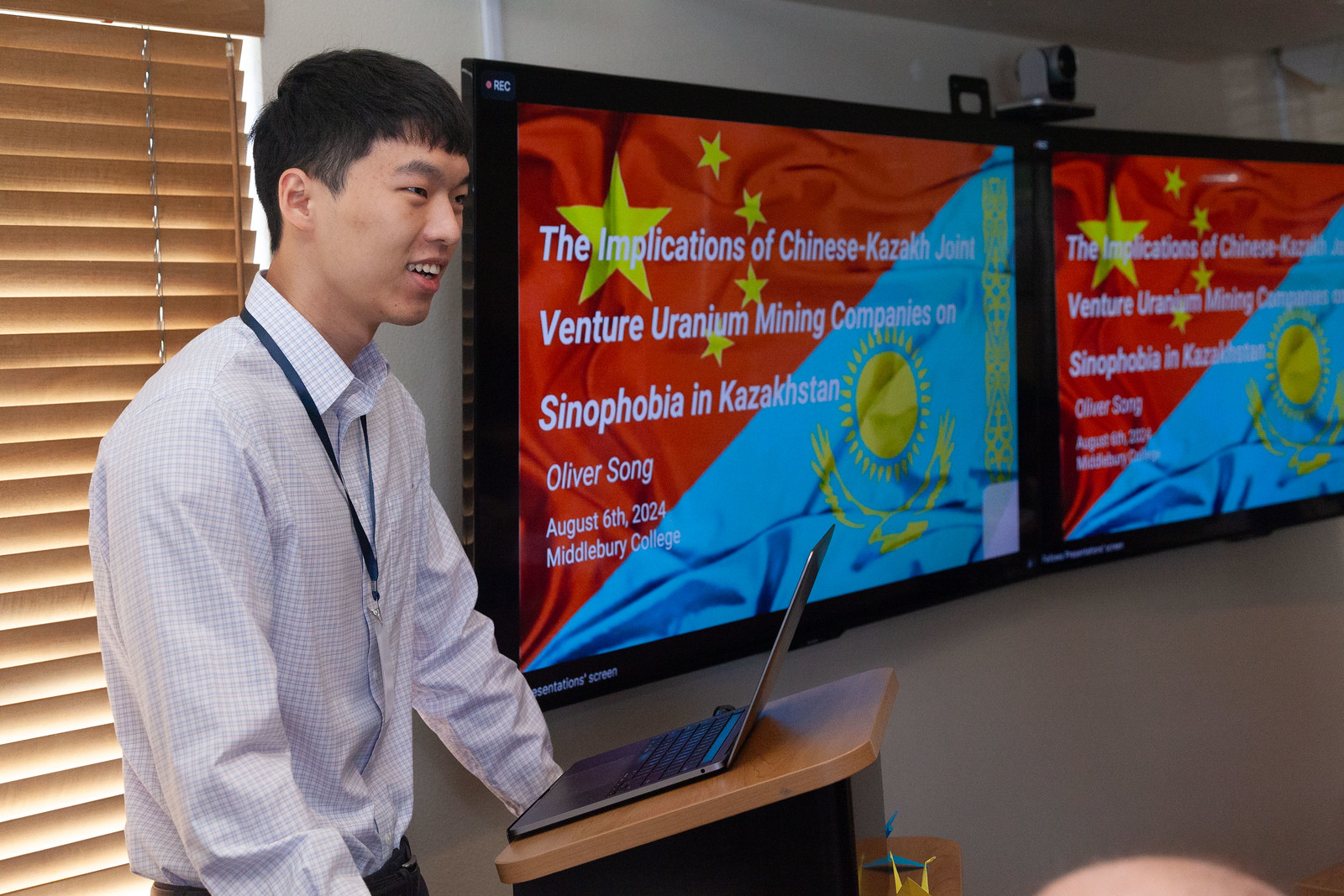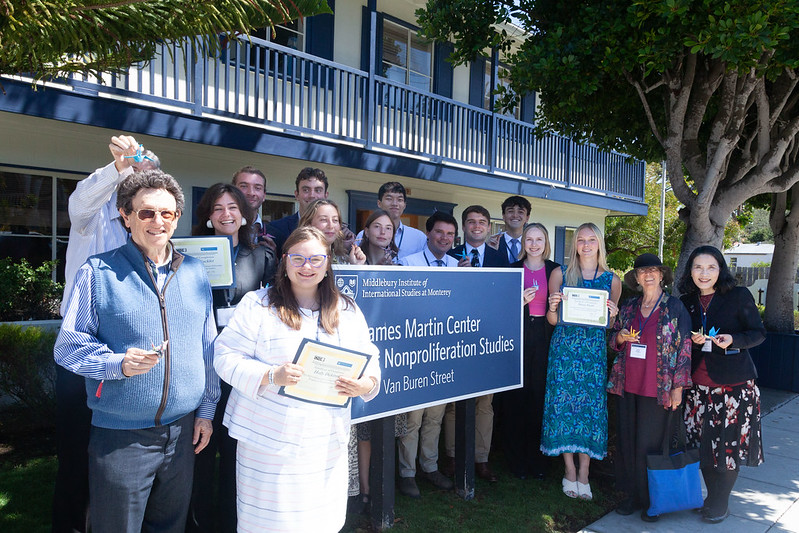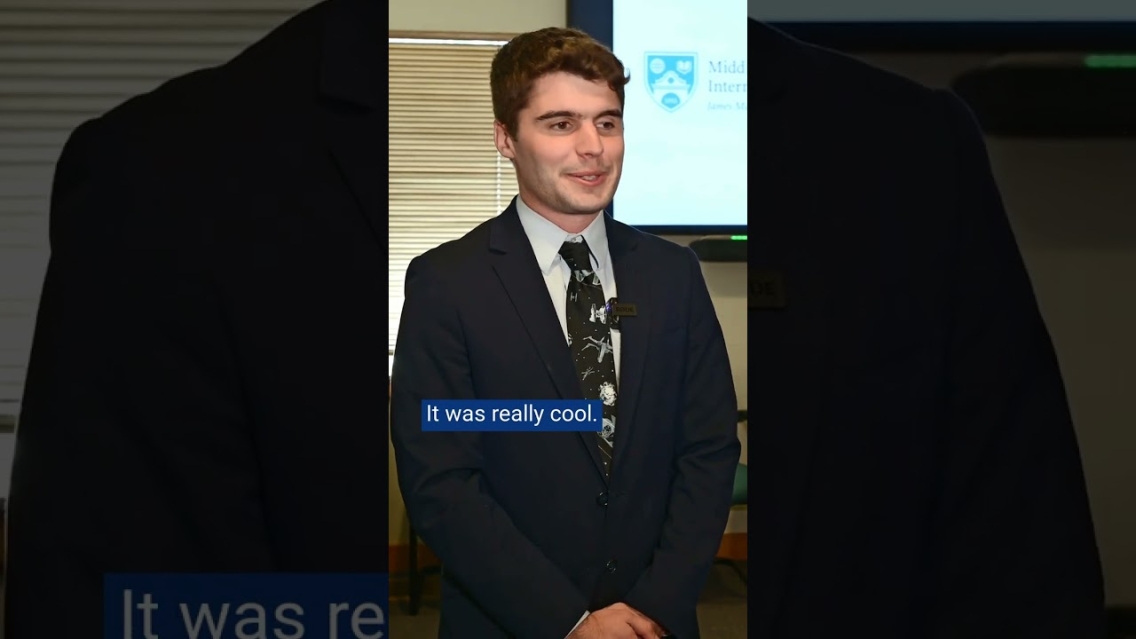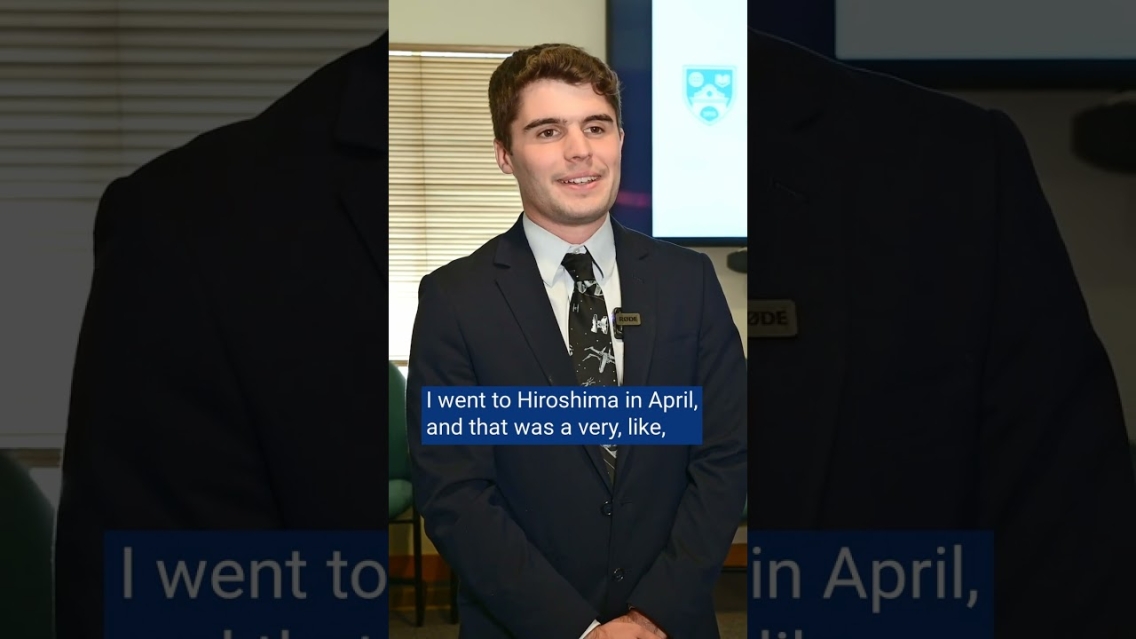Competitive Summer Program Brings Undergraduates to Monterey to Study Nonproliferation

Only in Monterey can undergraduates spend their days learning from the world’s top experts in nonproliferation and then catch sunset at the beach.
“It’s a unique program,” said Masako Toki, senior education project manager and research associate with the James Martin Center for Nonproliferation Studies (CNS). “We are living in a time of escalating nuclear threats. It is critical that we develop and support the next generation of professionals working to advance peace.”
Each year, 12 undergraduates from across the country are selected from among hundreds of applicants for the Summer Nonproliferation Undergraduate Fellowship at CNS. CNS is the largest nongovernmental organization in the world devoted to curbing the spread of weapons of mass destruction and is based at the Middlebury Institute in Monterey, California, with offices in Washington, D.C., and Vienna, Austria.
During the summer program, participants attend lectures with nonproliferation experts and get training and mentorship as they conduct their own research on issues related to the spread and control of weapons of mass destruction (WMDs), including nuclear, chemical, and biological weapons, and regional security issues in the former Soviet Union, Eurasia, East Asia, South Asia, and the Middle East. Fellows also learn about AI and nonproliferation, and open-source tools for nonproliferation.
“I’ve done several other internship programs and this has been the best one by far for my future career,” said Holly Dickison, an undergraduate at Smith College.
Participants were particularly excited about the accessibility of experts and the chance to dive into the complexities and nuances of international relations.
This year’s program was funded by the Tom and Sarah Pattison Fund, the Middlebury College Provost’s Office, and the Carnegie Corporation of New York.

Donors Sarah and Tom Pattison attended the students’ final research presentations.
“Our generation has left a lot of challenges for your generation,” said Tom Pattison, who compared nonproliferation work to his experience as a doctor trying to get his patients to quit smoking. “The work we do in preventing conflict saves so many lives, and it’s hard work because you don’t get credit for prevention.”
“You had a lot of choices of what to do this summer,” said Sarah Pattison. “Thank you for choosing to do something to bring peace to the world.”
Why study nonproliferation? The Summer Undergraduate Fellows find this field compelling for many reasons
Summer 2024 Fellows
The fellows researched a wide range of topics for their final projects.
Madelyn Fackler
University of Georgia
The Nature of the Problem: Recontextualizing Prospects for U.S.-China Arms Control
Maya Watson
Middlebury College
Nuclear Power in Kazakhstan: Pros, Cons, and the Role of Public Opinion
Sircey Smith
Trinity Washington University
From Concept to Deployment: Exploring the Intersection of Artificial Intelligence and Small Modular Reactors
Thalia Miller
Wellesley College
Humanitarian Perspectives on Nuclear Testing: Addressing Historical Injustices to Indigenous Communities
Holly Dickinson
Smith College
Language & Barriers: The Impact of Gendered Language on Women’s Representation in Nuclear Non-Proliferation
Dana Leib-Perry
Middlebury College
Nuclear Futures: Iran’s Prospective Nuclear Outreach
Berkley Pelletier
American University
U.S. Nonproliferation Efforts Toward Israel and Taiwan, 1958–1988
Zander Gilmartin
Middlebury College
Pushed to the Brink: Mitigating Iranian Nuclear Actions of Concern since 2010
Sam Merriam
Middlebury College
Crimson Tides: Tracking Recent Houthi Attacks in the Red Sea
Josiah Durfee
Middlebury College
Russian Chemical Weapons Usage in Ukraine: Verifications, Explanations, and Implications
Oliver Song
Middlebury College
The Implications of Chinese-Kazakh Joint Venture Uranium Mining Companies on Sinophobia in Kazakhstan
Jessica Sobieski
University of Georgia
Amplifying Terror: A Comparative Study of the Use of CBRN Weapons by Non-State Actors in Africa



